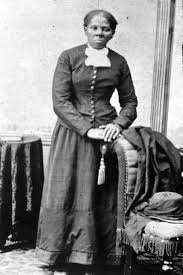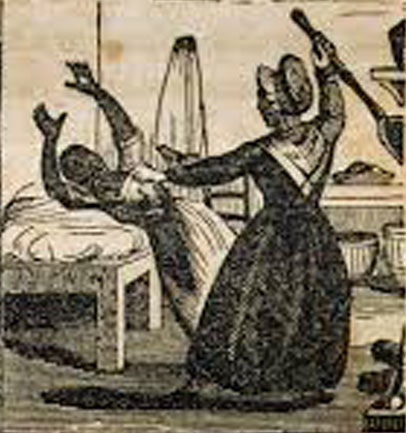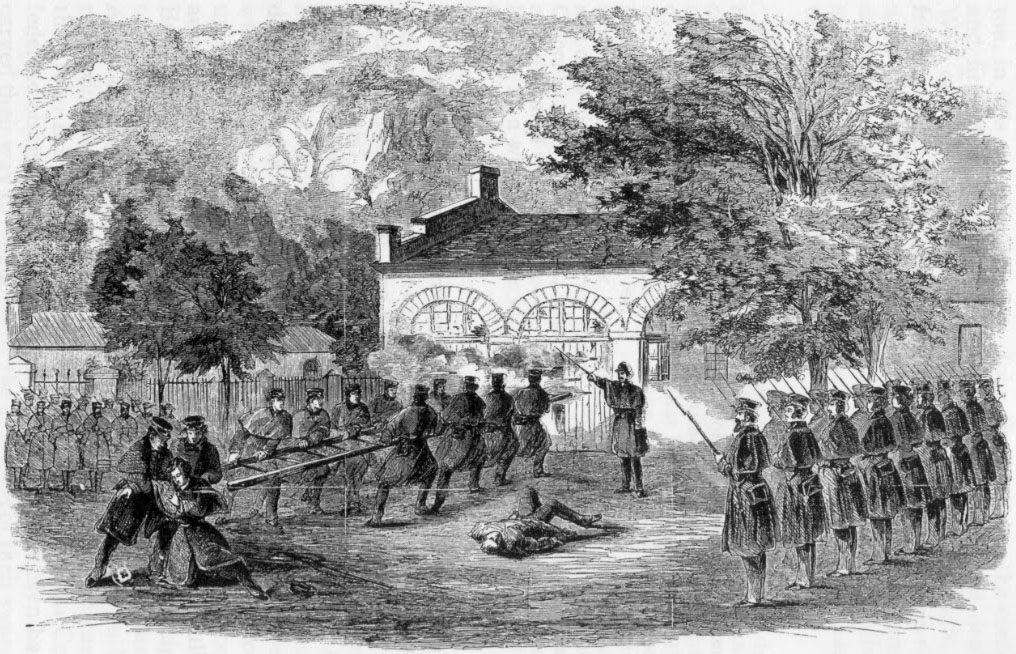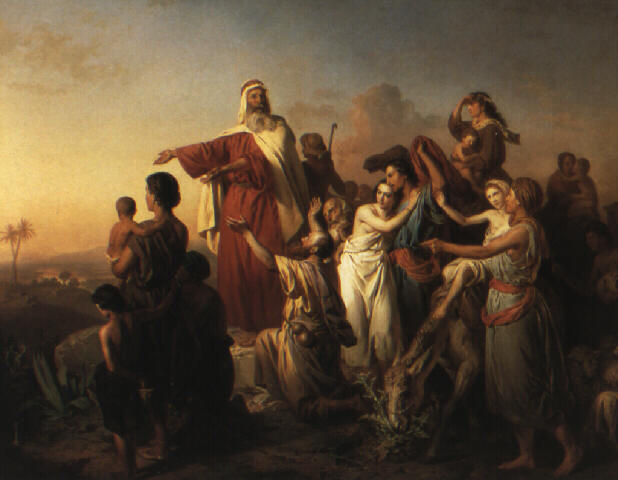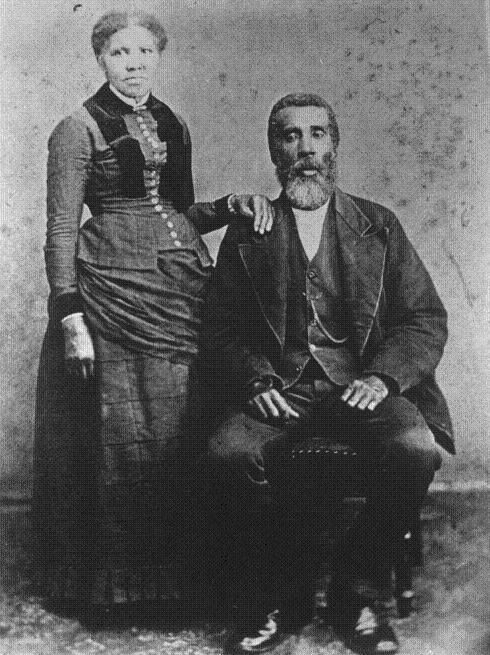Harriet Tubman
The Underground Railroad
Harriet Tubman was a runaway slave from Maryland who became a conductor in the underground railroad and, “she never lost a passenger.” Her grandmother arrived in the United States on a slave ship from Ghana she was of Ashanti lineage. Harriet was born into slavery. Her mother was assigned to “the big house” so Harriet took care of her younger brothers. When she was six years old she was hired out as a nursemaid to a woman named “Miss Susan”. She was ordered to keep watch on the baby as it slept. When it woke up and cried she was whipped. One day Harriet was lashed five times before breakfast. She was beaten and whipped by various masters as a child.
a slave under the overseer’s whip
She suffered a traumatic head wound by irate slave owner that caused her to suffer dizziness and pain throughout her life. Tubman’s biographers agree that stories told about this event within the family influenced her belief in the possibilities of resistance. Tubman escaped along with two brothers to Philadelphia then immediately returned and over eleven years made thirteen missions to save seventy enslaved families and friends. Her people called her, “Moses.” She used the network of antislavery activists and safe houses known as the Underground Railroad. They traveled at night and in extreme secrecy.
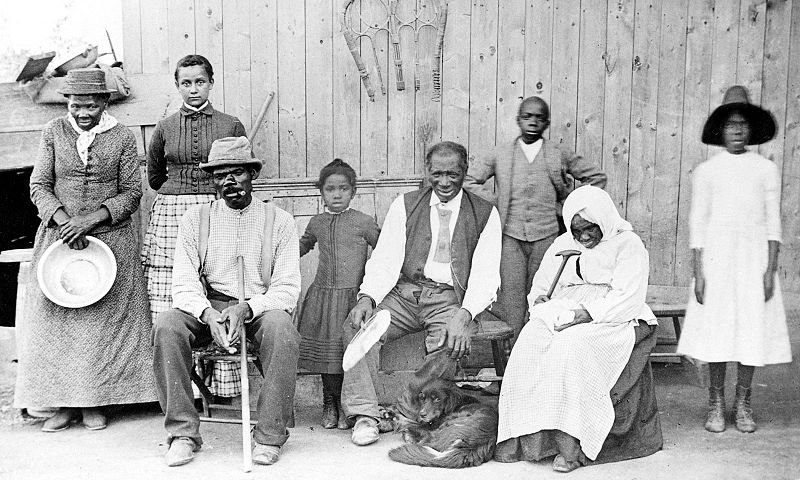
Harriet Tubman with rescued slaves New York Times
She worked for the Union army first as a cook and nurse, then later as an armed scout and spy. Harriet was the first woman to lead an armed expedition in the war. She guided the raid at Combahee Ferry, which liberated more than 700 slaves. Later she helped abolitionist John Brown recruit men for his raid on Harpers Ferry.
the storming of the engine house at Harpers Ferry
Harriet was inspired by Brown the first time she met him in 1858. They shared a strong emotional and intellectual bond over the slavery issue. Tubman had long viewed slavery as a sin, but under Brown’s influence, she came to perceive slavery as, “a state of war.” She was ready to consider insurrections. Brown dubbed her, “General Tubman.”
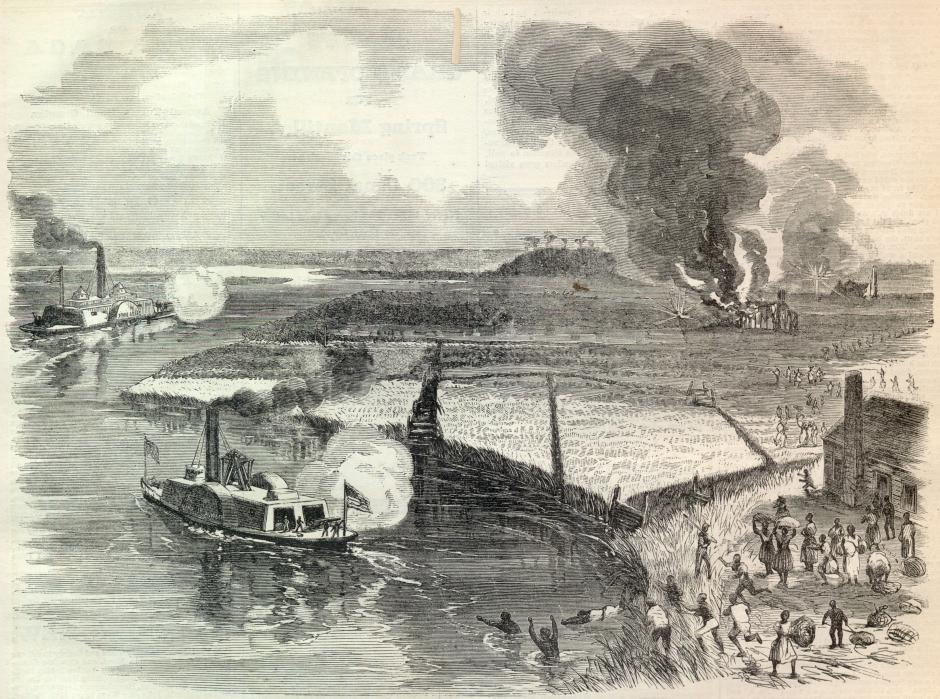
“a woman named Moses” – Harriet Tubman led the Combahee River Raid 1863
Harriet was a devout Christian and experienced strange visions and vivid dreams, which she ascribed to premonitions from God. As an illiterate child her mother told her bible stories. This religious perspective affected her actions throughout her life. She rejected the teachings of the New Testament that urged slaves to be obedient to their oppressors. She found guidance in the Old Testament stories of deliverance. She spoke of “consulting with God”, and trusted that He would keep her safe. Thomas garret once said of her, “I never met with any person of any color who had more confidence in the voice of God, as spoken direct to her soul.” She used her faith in the divine also provided to warn fellow travelers of danger or to signal a clear path.
Moses Leading the Israelites out of Egypt
Tubman also carried a revolver and she was not afraid to use it. The gun provided protection from the ever-present slave catchers and their dogs. She also purportedly threatened to shoot any escaped slave who tried to turn back on the journey since that would threaten the safety of the remaining group of runaway slaves.

the journey to freedom
In December 1951, Tubman guided a group of 11 fugitive slaves that stopped a the home of abolitionist and former slave Frederick Douglass. Tubman and Douglass admired one another greatly as they both struggled against slavery. When an early biography of Tubman was being prepared in 1868, Douglass wrote a letter to honor her. It read in part:
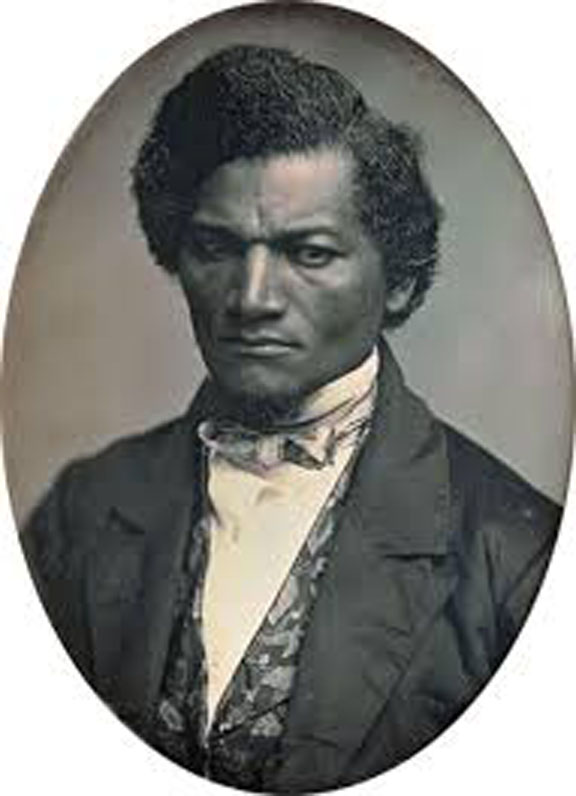
Frederick Douglass
You ask for what you do not need when you call upon me for a word of commendation. I need such words from you far more than you can need them from me, especially where your superior labors and devotion to the cause of the lately enslaved of our land are known as I know them. The difference between us is very marked. Most that I have done and suffered in the service of our cause has been in public, and I have received much encouragement at every step of the way. You, on the other hand, have labored in a private way. I have wrought in the day—you in the night. … The midnight sky and the silent stars have been the witnesses of your devotion to freedom and of your heroism. Excepting John Brown—of sacred memory—I know of no one who has willingly encountered more perils and hardships to serve our enslaved people than you have.
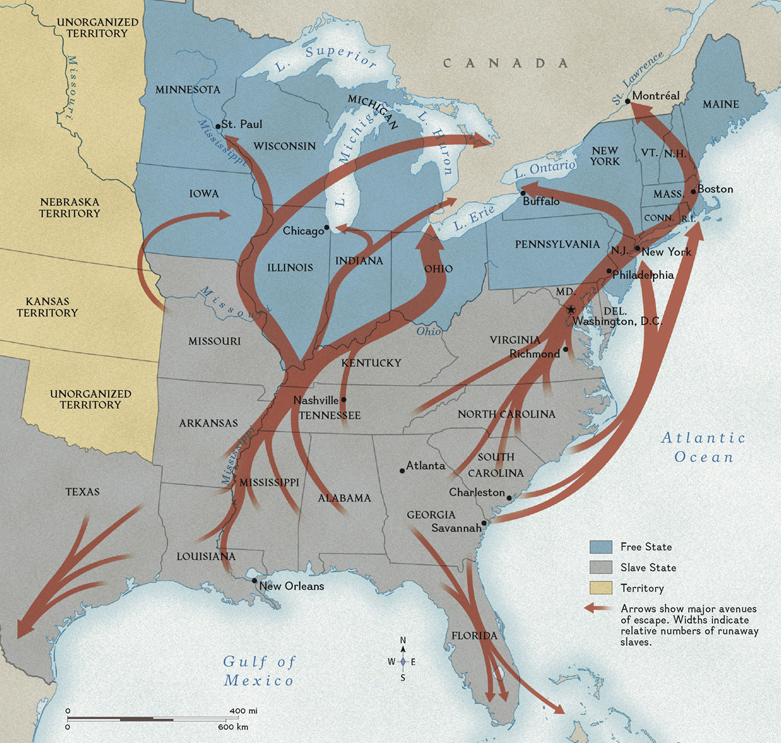
the underground railroad
Despite the best efforts of the slaveholders, Harriet Tubman was never captured, and neither were the fugitives she guided. Years later she told an audience, “I was conductor of the Underground Railroad for eight years, and I can say what most conductors can’t say – I never ran my train off the track and I never lost a passenger.” On her last mission to Maryland she retrieved her aging parents. After the war Tubman was an active participant in the struggle for women’s suffrage movement. She passed away in 1913
Harriet and John Tubman
>>to return to previous page – right click on back arrow <<
Word count: 885
